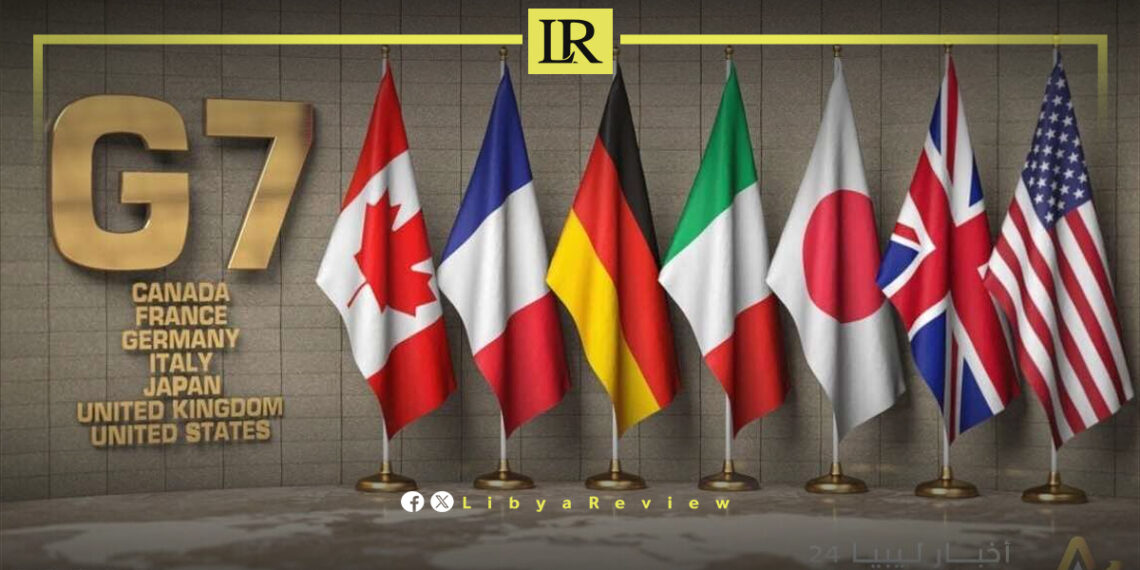On Tuesday, the Group of Seven (G7) nations voiced deep concerns over the escalating crisis involving Libya’s Central Bank, urging all Libyan stakeholders to urgently find a consensus to restore the institution’s integrity and safeguard its role within the international financial system.
In a strongly worded statement, the G7 highlighted the risk of further political destabilization if unilateral actions are taken by Libyan factions. The group stressed the importance of avoiding any steps that could deepen divisions, calling for a Libyan-led political process under the guidance of the United Nations to pave the way for long-overdue presidential and parliamentary elections.
In light of the escalating situation, the G7 urged the UN Secretary-General to quickly appoint a new Special Envoy for Libya to help mediate the crisis and support efforts toward stability. This move is seen as crucial in the face of the increasing political and institutional gridlock in the country.
The G7’s concerns come amid growing instability surrounding the Central Bank of Libya, which has been at the heart of a broader power struggle between rival factions in the east and west.
Since the fall of Muammar Gaddafi in 2011, Libya has been deeply divided, with the Central Bank split between two competing administrations — one in Tripoli and another in the eastern part of the country. This fragmentation mirrors the larger political chaos that has prevented Libya from achieving lasting peace.
In recent months, the crisis at the Central Bank has worsened, threatening to destabilize the country’s fragile economy. The bank, which manages Libya’s crucial oil revenues, is one of the few institutions still operating despite years of conflict.
Control over these revenues is a major point of contention between Libya’s factions, with the future of the bank seen as pivotal to the nation’s recovery. The G7 stressed that restoring a unified and transparent banking system is critical to preserving Libya’s financial credibility and ensuring stability.
The G7’s statement also warned against any faction taking control of the bank’s assets for political advantage, a move that could derail efforts toward reconciliation. Such actions could spark new conflicts and push Libya further into chaos.
The Central Bank crisis comes at a crucial time for Libya, as the country remains without a clear path to elections or national reconciliation. The G7’s intervention signals mounting international pressure on Libyan leaders to resolve their differences peacefully and avoid further economic and political deterioration.


